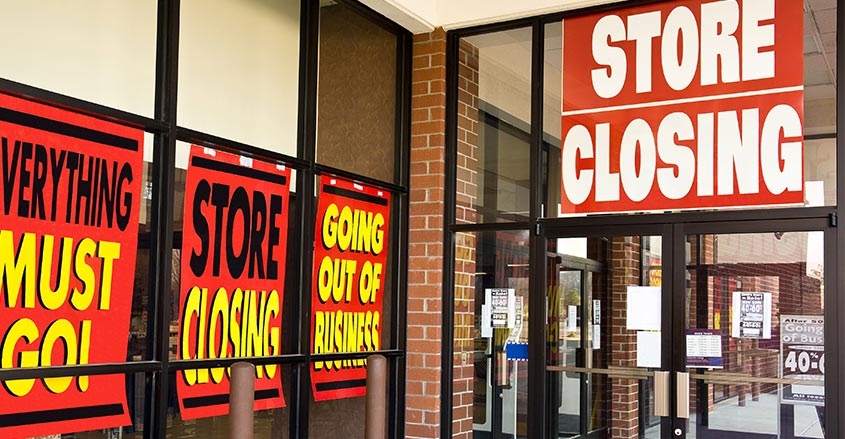As nearly half of U.S. states brace for an onslaught of new COVID cases, the financial impact is becoming nearly unavoidable — small business going under in droves, making the employment picture worse by the day.
“You are going to have such a flood of cases going to the bankruptcy court,” predicts Stephen Ross, chairman of commercial real estate firm The Related Companies.
Ross says the COVID-19 pandemic is to blame for this coming avalanche of bankruptcies. “And these aren’t really the type of bankruptcies that were induced by bad practices,” continued Ross.
“It’s really all driven by the pandemic.”
So far, the retail and hospitality industries have been the hardest hit by shutdowns related to COVID.
Small businesses have been forced to close and travel has been dramatically reduced to stop the spread of the virus. Major players in the retail space, such as Neiman Marcus, J.C. Penney and J.Crew, have already filed for bankruptcy.
Ross is now concerned about small and medium-sized businesses in retail and the restaurant industry. “Many of them probably don’t have the wherewithal to reopen,” he says.
Ross’s real estate firm, manages the Hudson Yards mall in NYC, where Neiman Marcus was an anchor tenant.
Blame private equity?
The COVID-19 pandemic is undoubtedly the death blow to many of these big-name retailers.
However, their business practices before the pandemic also need to be taken into consideration.
This is certainly true of J. Crew and Neiman Marcus. Over the past decade, both of these companies started to accumulate massive debt thanks to leveraged buyouts led by private equity firms.
The figures came to $1.7 billion in J. Crew’s case and almost $5 billion for Neiman Marcus.
“Much of the difficulty that the retail sector is experiencing has been aggravated by private equity involvement,” Elisabeth de Fontenay, a professor at the Duke University School of Law who specializes in corporate finance, told The New York Times.
“To keep up with everybody’s switch to online purchasing, there really needed to be some big capital investments and changes made, and because these companies were so debt-strapped when acquired by private equity firms, they didn’t have the capital to make these big shifts.”
Taken into consideration that these companies had almost an unimaginable amount of debt, the rise of e-commerce, their failure to connect with the younger generation, and then a global pandemic — it should really be a surprise to no one that these big-name retailers had to declare bankruptcy.
Now it appears their many smaller cousins won’t be spared either.


